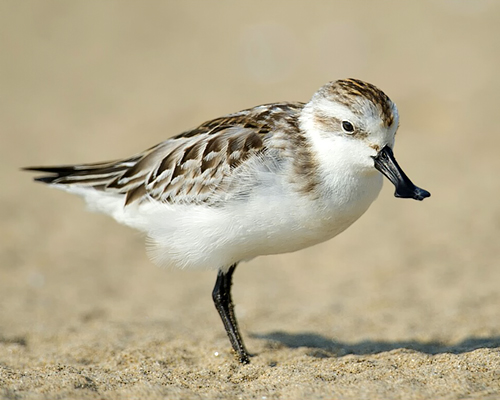
Birds Korea is a legally-registered Korean NGO, working for the conservation of birds and their habitats in Korea and the wider Yellow Sea Eco-region. We conduct scientific research, develop plans and designs and we conduct education and awareness-raising programs. Examples of our work can be found on our websites (with parallel websites in both Korean and English) and in our publications.
Much of our work remains focused on the conservation of Korea’s most threatened major habitat type: tidal-flats. Tidal-flats are vital to people and birds alike. Yet, 75% of our nation’s tidal-flats have already been reclaimed, with half of this area destroyed in only the past 25 years. As a result, fishing communities are in decline, and many of the bird species that depend on our nation’s tidal-flats are also in decline and even globally-threatened with extinction. These include the Critically Endangered Spoon-billed Sandpiper, a small migratory shorebird species with a total population of probably fewer than 300 individuals. Due to its high rate of decline (recently estimated at 25% of the population every year), the Spoon-billed Sandpiper is now predicted to become globally extinct in the wild within this decade, unless much greater conservation actions are taken. The Spoon-billed Sandpiper therefore might soon become the very first Korean bird species to go extinct within the present century. Its extinction, terrible in itself, would signal the loss and degradation of the nation’s most important tidal-flats – and the decline and disappearance of many other less well-known tidal-flat species.
The extinction of the Spoon-billed Sandpiper is far from inevitable, however. More and more people are now working to conserve the species, here in the Republic of Korea (ROK) and overseas. All understand that if many of us – individuals, NGOs, academics, media and governments - work together for conservation, then the Spoon-billed Sandpiper and many other tidal-flat species will be saved from extinction. Success will depend largely on improved scientific knowledge and on much greater public awareness. Birds Korea therefore became the Korean NGO member of the International Spoon-billed Sandpiper Recovery Task Force in 2006; has conducted research on the species every year since then; and in 2012 decided to try to make our own mini-documentary on the species, with the aim of completion by mid-2014.
As planned, this mini-documentary will help make clear the connection between reclamation and extinction. It will also introduce best examples of conservation work for the Spoon-billed Sandpiper. Presented entirely in Korean (though perhaps with English subtitles), we believe that this documentary will be of great interest to a wide audience – especially as our nation prepares to host the next Conference of the Parties of the Convention on Biological Diversity (in October 2014).
Already, we have been able to gather some great footage by ourselves. However, we need and welcome the support and expert input of others. In addition to discussing the project with an award-winning documentary maker in Busan, we therefore contacted the world-famous Cornell Lab of Ornithology in the United States. The multimedia department within the Cornell Lab has already captured the best footage of Spoon-billed Sandpipers ever taken in its remote Russian breeding grounds; and has filmed the species in its winter home in Burma. They have been active supporters of the Spoon-billed Sandpiper Task Force for several years; and their expertise and experience are vital to any top-quality documentary on this species.
Our collaboration is still in its earliest stages and much remains to be done. Nonetheless, in early 2013, Birds Korea and the Cornell Lab agreed to work together to gather footage of the Spoon-billed Sandpiper and the threats to it in the ROK. At the invitation of Birds Korea, a small (elite!) team from the Cornell Lab will therefore come to the ROK, between October 2nd and October 12th 2013. Weather and tides (and birds!) allowing, we aim together to capture images and footage of Spoon-billed Sandpipers at the internationally important Nakdong Estuary, Geum Estuary and Gomso Bay; we will record landscapes of rich tidal-flats and areas that have been devastated by reclamation, as at Saemangeum; we will document human communities still dependent upon the tidal-flats; and we will conduct further interviews with people vital to successful conservation.
Simply taking good footage will not be enough – either for the mini-documentary project or for the Spoon-billed Sandpiper and the tidal-flats it depends on. There is much work ahead. Birds Korea has limited capacity and a massive workload. Always, our organisation and the success of our work both depend entirely on our members and supporters – on you.
To learn more about how you can support this mini-documentary project and our other work, please visit our websites and / or contact us.
We welcome and are most grateful for your support.
Thank you!



